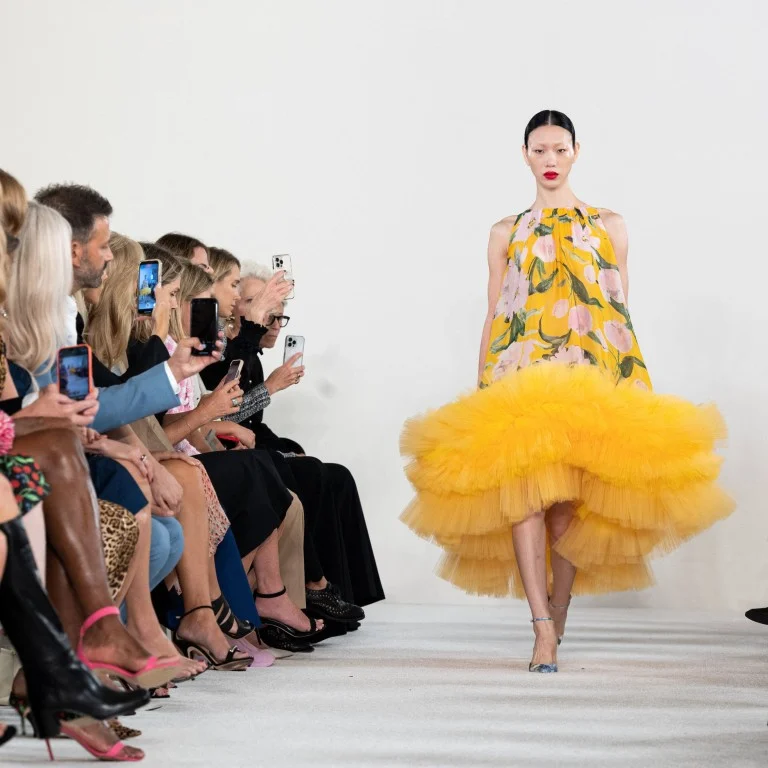The Legacy of Fashion Week in the U.S.
Fashion Week is one of the most anticipated events in the fashion world, bringing together top designers, influencers, and fashion enthusiasts from around the globe. In the United States, Fashion Week has evolved into a cultural phenomenon that showcases the best of American fashion. Cities like New York, Los Angeles, and Miami have become iconic hubs for fashion innovation, where both established and emerging designers present their collections for the upcoming seasons.
In 2025, Fashion Week in the U.S. is more than just a platform for designers to display their work—it’s a celebration of creativity, diversity, and inclusivity in fashion. As American fashion continues to adapt to the demands of a changing society, Fashion Week serves as a stage for fresh ideas and groundbreaking trends that challenge traditional norms.

Fashion Week in 2025: What to Expect
As we enter 2025, Fashion Week in the U.S. promises to be more exciting and diverse than ever before. The focus on sustainability, gender inclusivity, and cultural diversity will take center stage, reflecting the changing values of consumers and designers alike. Designers are increasingly incorporating innovative fabrics, eco-friendly production methods, and inclusive sizing into their collections, making the event a reflection of broader shifts in the industry.
1. The Rise of Sustainable Fashion
Sustainability is a key theme in Fashion Week 2025, as designers are more committed than ever to reducing their environmental impact. From using organic fabrics to supporting fair-trade manufacturing practices, many designers are opting for eco-friendly alternatives in their collections. This shift towards sustainability is not just a trend—it’s a response to the growing demand for ethical fashion and the need to address the environmental impact of the fashion industry.
One of the most exciting aspects of Fashion Week in the U.S. is the rise of sustainable fashion brands that focus on creating beautiful pieces without compromising the planet. Designers are experimenting with innovative, sustainable fabrics such as recycled polyester, organic cotton, and plant-based leather. Additionally, many brands are embracing a circular fashion model, encouraging consumers to buy less and invest in high-quality, long-lasting pieces.
2. The Diversity and Inclusivity Movement
Fashion Week in the U.S. has long been a platform for showcasing diverse talents, but in 2025, inclusivity will be more important than ever. Designers are not only focusing on racial and ethnic diversity but also on inclusivity in terms of gender, body size, and age. The fashion industry is finally beginning to recognize the importance of representing all types of beauty, and this movement will be on full display during Fashion Week.
Expect to see models of various ethnicities, body types, and genders walking the runway. The fashion community is embracing the idea that beauty comes in all shapes, sizes, and colors, and designers are creating collections that cater to a wide range of consumers. The inclusive fashion movement is not just about representation—it’s about creating clothes that make everyone feel confident and beautiful.
3. Gender-Neutral Fashion Takes Center Stage
Gender-neutral fashion is another major trend that will dominate Fashion Week in the U.S. in 2025. As society becomes more accepting of fluid gender identities, many designers are opting for collections that are free from traditional gender constraints. This means oversized blazers, unisex trousers, and androgynous cuts will take center stage.
Designers such as Telfar Clemens, Palomo Spain, and others have already pioneered the gender-neutral fashion movement, and 2025 will see even more designers embracing this inclusive approach. The goal is to create clothes that everyone can wear, regardless of gender, allowing individuals to express themselves authentically without being confined by traditional labels.
Top American Designers Showcased at Fashion Week 2025
Fashion Week in the U.S. is not just about trends—it’s about celebrating the work of some of the most talented designers in the industry. From established names to up-and-coming stars, Fashion Week in 2025 promises to feature a wide array of collections that push boundaries and challenge conventional ideas. Here are some designers to keep an eye on:
- Ralph Lauren: Known for his timeless American elegance, Ralph Lauren continues to be a staple at Fashion Week. In 2025, we can expect to see a collection that honors classic American style while incorporating sustainable fabrics and modern designs.
- Marc Jacobs: Marc Jacobs has always been at the forefront of fashion innovation, and his 2025 collection will likely be a reflection of the changing landscape of American fashion. With an emphasis on individuality, his pieces will likely feature bold colors, innovative silhouettes, and gender-fluid designs.
- Prabal Gurung: Known for his diverse, inclusive approach to fashion, Prabal Gurung is expected to bring a collection that celebrates global culture and individuality. His designs often reflect his commitment to sustainability and inclusivity.
The Future of Fashion Week in the U.S.
As Fashion Week continues to evolve, it’s clear that the future of American fashion is bright. With a focus on sustainability, inclusivity, and innovation, the event has become more than just a showcase of clothing—it’s a platform for changing the fashion industry’s values and direction.
The American fashion scene in 2025 will continue to celebrate diversity, pushing boundaries in terms of what it means to be fashionable and how fashion can reflect the society we live in. The evolution of Fashion Week signals a new era for the fashion industry—one where everyone, regardless of gender, size, or background, can participate and feel represented.
Conclusion
Fashion Week in the U.S. in 2025 is not just an event—it’s a celebration of everything that American fashion stands for. From sustainable fashion to gender-neutral designs and diverse representation, the event will showcase the industry’s commitment to inclusivity, creativity, and progress. As the world of fashion continues to evolve, Fashion Week remains an essential platform for designers to share their visions and for the fashion world to come together in celebration of what’s next.